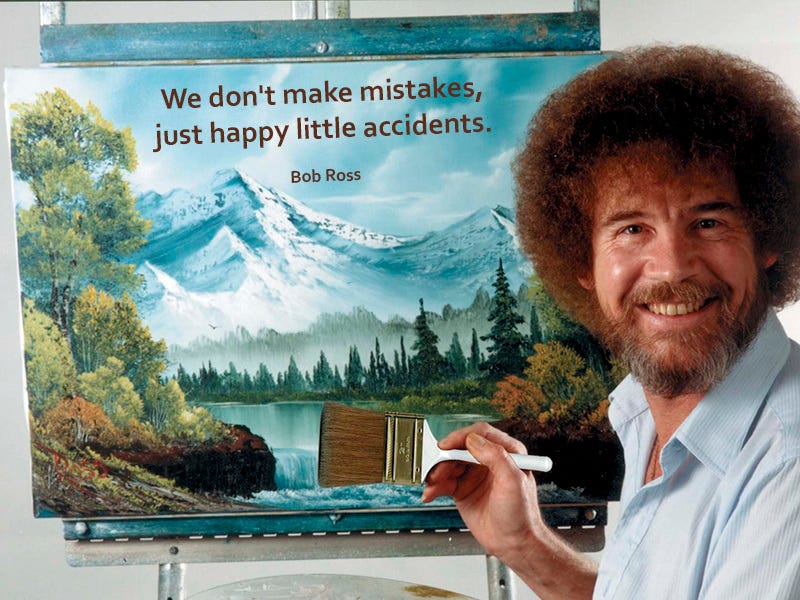Mistakes are a large part of investing.
For many - myself included - they’re a larger part of investing than ideal.
And here in the world of finance, mistakes hurt more than in other fields, for one main reason: money’s involved.
Other professions are more forgiving in the face of mistakes…
Consider being an artist; Bob Ross famously said mistakes are just happy little accidents.
It’s similar in science, all hypothesis are made to be disproved. If you find a mistake - you’ve likely innovated, you’ve improved the scientific field; finding and resolving mistakes is the reason science has come so far.
Imagine we realised the Sun doesn’t orbit Earth - but we felt a little embarrassed about how wrong we were so we just ignored it…
That’s what most investors do, we shy away from every mistake because they’re uncomfortable.
It causes less immediate pain to ignore it than to rub our nose in it, so ignore it we shall!
Ironically, this approach to mistakes is a mistake.
Today, I’ll share a few ramblings that will shed some light on the nuances of investment mistakes and the best way to approach them to become better, more thoughtful investors.
Processes & Outcomes
People tend to judge mistakes based on outcomes. If an investment doubles it was genius. If it halves, it was a mistake.
But what if it was a failure because of a black swan event? Is that still a mistake?
My faded memory recalls one of Joel Greenblatt’s failed investments where he bought something that traded far below the value of its assets, then a sink hole came and destroyed said assets.
That’s a random outcome, not a mistaken process,
Outcomes are influenced by randomness, analysing them will not get you very far.
Our process is the portion that we have the most control over.
Learning from the mistakes in our process is then most likely to result in genuine improvement.
Consider this example: you have doubled your money on an investment and you begin reflection.
Outcome Analysis:
It doubled, I’m a genius.
Process Analysis
Why didn’t I allocate more capital to this idea?
Did it go up for the reasons I intended in my thesis?
Was there a better opportunity I didn’t pursue?
These are the kind of insights that cause real improvements.
If you want a valuable insight, it’ll only be valuable because not everyone has that insight. By looking at your process you open yourself to insights that most people ignore.
This thinking is scarce, which is why it’s valuable
This is Howard Marks’ idea of second-level thinking.
Check out this brilliant clip of Marks explaining why we must implement this thinking:
The process is where the insight lies. And after thinking about it, it becomes glaringly obvious.
Outcome: I have little control over this, any errors are more likely attributable to luck and randomness.
Process: I have full control over this, any errors are entirely attributable to me, and therefore can be rectified.
Putting it this way cemented the idea for me, you can only change what you can control - so focus on that.


